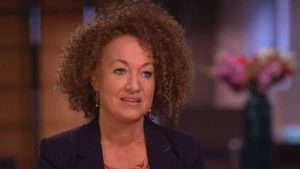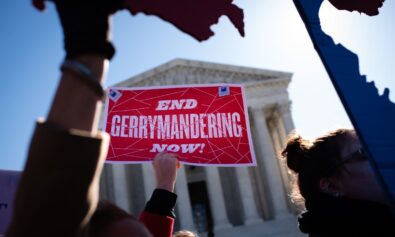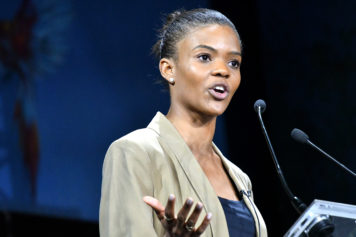
Rachel Dolezal says she hasn’t been able to find a job ever since it was revealed that she’s actually white, not African-American. Image courtesy of Today.com.
It’s been nearly two years since former NAACP branch leader Rachel Dolezal was exposed for who she truly is — a white woman.
Dolezal, who has posed as an African-American for most of her life, has since found out that being Black isn’t all cool kinks and cocoa butter. Still, she’s offering up no apologies for pretending to be someone she’s not.
“I’m not going to stoop and apologize and grovel and feel bad about it,” Dolezal told The Guardian. “I would just be going back to when I was little and had to be what everybody else told me I should be to make them happy.”
In a recent interview with the publication, the Montana native revealed that she’s fallen on hard times, as she’s been unable to find work in the wake of her transracial identity scandal. She said she’s applied to more than 100 jobs but, even the local grocery store won’t hire her. Her family is now living on food stamps and Dolezal said she expects they’ll be homeless by next month.
“The only work she has been offered is reality TV and porn,” according to The Guardian. “She has changed her name on all her legal documents, but is still recognized wherever she goes. People point at her and laugh.” [WHOS QUOTES ARE THESE?]
Dolezal resigned from her position as leader of the NAACP’s Spokane chapter in 2015 after her parents, who are both white, revealed that she isn’t actually African-American. The former NAACP leader ultimately admitted she was a white woman born to white parents but asserted that race isn’t “coded in your DNA.” She said she’s always identified as African-American, ever since she was a little girl drawing doodles of herself with brown crayons and slathering her face with mud and pretending to be captured from the shores of Africa.
Dolezal has since penned a memoir, set for release in March but said nearly 30 publishing houses turned it down for fear of “contributing to wrong and oppression and bad things; to a liar and a fraud and a con.” She said she wrote the book, titled “In Full Color,” to simply “set the record straight, but also to open up this dialogue about race and identity, and to just encourage people to be exactly who they are.”
Dolezal told The Guardian that the more she tried to explain her transracial identity as a “pan-African, pro-Black, bisexual, artist, mother and educator,” the more people misunderstood her. She asserted that, for her, the idea of being trans-Black was more accurate than identifying as just white.
“There’s a perspective, there’s a mentality, there’s a culture,” Dolezal explained. “To say that I’m Black is to say, ‘This is how I see the world, this is the philosophy, the history … This is what I love and what I honor.’
“Calling myself Black feels more accurate than saying I’m white.”
Two years have gone by and the 39-year-old is still a pariah for choosing to deceive others about her race. Right now, Dolezal said she’s only comfortable in the company of her sister and her kids but asserted that she’d never abandon her identity as a Black woman just to be accepted again.
“This is still home to me,” she said. “I don’t feel like I’m ever going to be hurt so much that I somehow leave who I am because I’m me.
“It really is who I am. It’s not a choice.”


